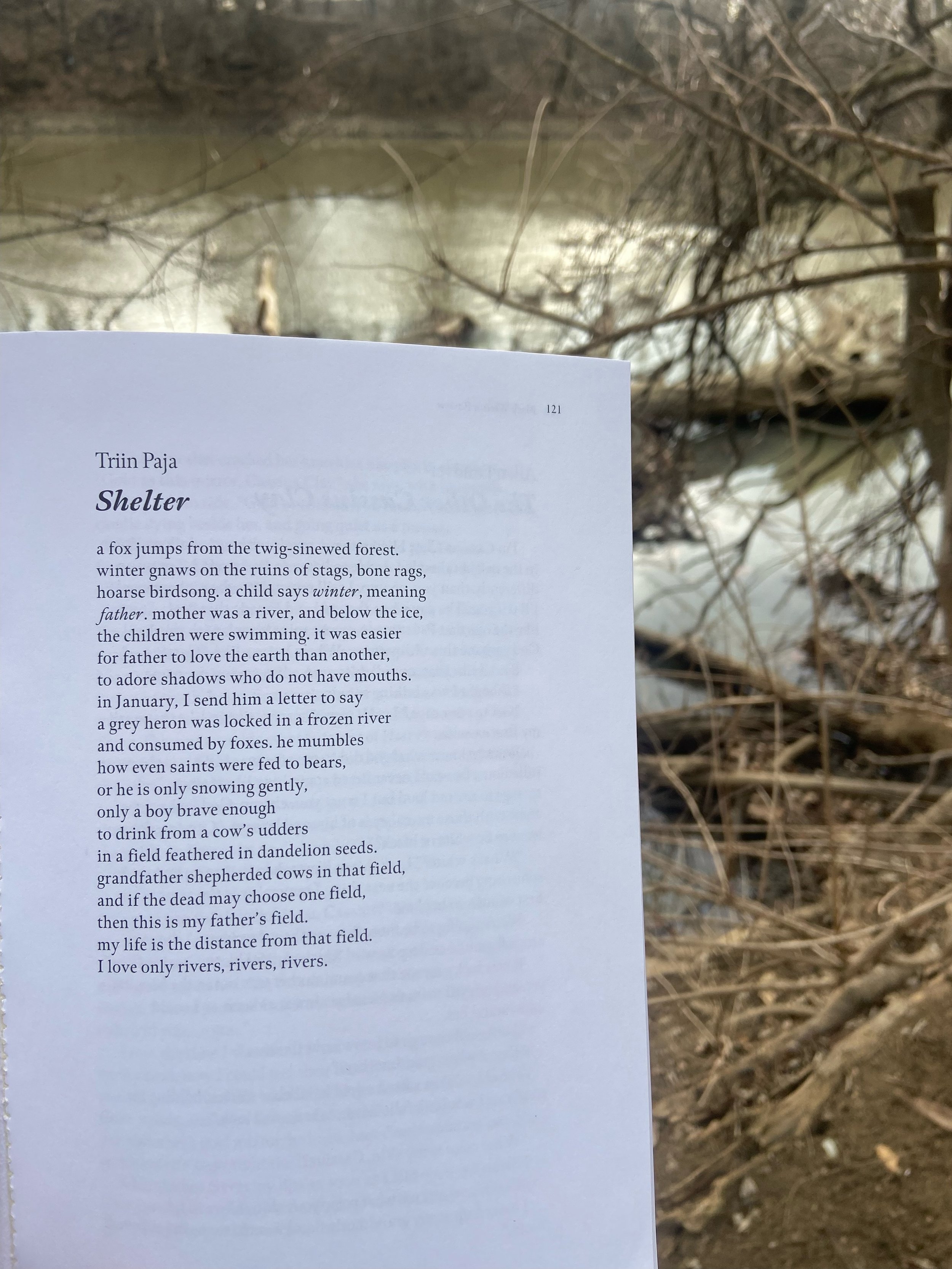“Shelter” - Triin Paja
“I love only rivers, rivers, rivers.”
- Paja in @blackwarriorrev
✨
It's been a quiet week recovering from illness & reflecting on a year of vertiginous flux.
“Shelter” consoles me, celebrating change without sanitizing pain.
✨
It opens with a dark, folktale dreamscape: animate (“twig-sinewed; gnaw[ing]”) & foreboding (“bone-strewn”).
Within it, a family materializes: father (winter), mother (river) and children. In lines 6-8, abstractions coalesce into 1st-person narrative: indefinite nouns (“a fox/a child”) become titles (“mother/father”). A speaker emerges (“I send him”).
The parents are destructive: father disengaged (loves what can’t speak back), mother repressed & repressive (her ice ambiguously protecting/entrapping kids). The parents’ internecine dynamic imprisons the narrator—a Heron devoured by Foxes.
Confronted with the Heron’s suffering, father makes excuses: “even saints were fed to bears” (it happens to the best of us), he’s “only snowing gently” (I’m not that cold), and a boyhood story about drinking from a “cow’s udders/in a field...”
This is the grandfather’s field; a glimpse into how intergenerational trauma transforms victims into victimizers. Boy-Winter wasn’t frozen, just starved for warmth…escaping home to suckle the forbidden teat of a farm animal.
There is pathos in understanding that Father never transcended pain (“if the dead may choose one field/ then this is my father’s field”). And poetic form emphasizes trauma’s centripetal force. Lines 16-19 end in “field:” the poem is pulled back (x4) to the place it began. Even the speaker isn’t fully free, her life measured “by the distance” traveled, but her poetic line still arriving at the past (“field”).
Yet “Shelter” concludes with possibility & movement – a tumble of “rivers, rivers, rivers.” This is what bolsters bravery:
The poem’s closest thing to traditional shelter is the grandfather’s (implied) farmhouse: a superficially bucolic, emotional wasteland. The domesticated, masculine world of (grand)father is toxic; the opening lines’ wild, feminine flux become salvific.
Sanctuary, Paja reveals, can mean exposure. Rivers only freeze when they stand still.
